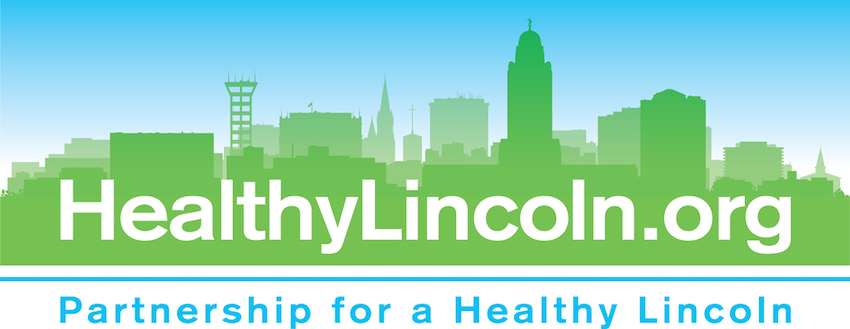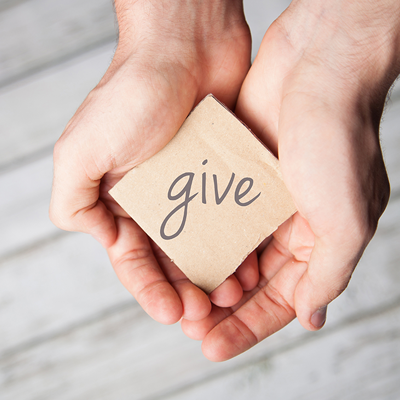Kids and Energy Drinks
Partnership for a Healthy Lincoln promotes healthy weights and safe beverage choices for kids. Energy drinks can be dangerous for kids 18 years old and younger. Learn the facts about kids and energy drinks below. Learn facts about other beverage choices like soda, juice, and sports drinks.
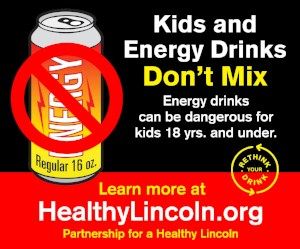
Energy Drinks Ingredients and Kids
FACT - To quote the American Academy of Pediatrics, “Rigorous review and analysis of the literature reveal that caffeine and other stimulant substances contained in energy drinks have no place in the diet of children and adolescents.” Stimulant substances like guarana or taurine have not been tested for safety in children. There is evidence, however, that the combination of sugar and caffeine is addictive, with one substance increasing the craving for the other. If kids get started on energy drinks early on, they may be hooked for life. Worse, consumption of energy drinks by young children and over-consumption by teens have been linked to heart attacks, seizures, and even death.
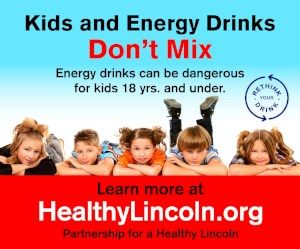
Energy Drinks, Sugar, and Child Obesity
FACT - On a typical day, 80% of youth drink sugar-sweetened beverages, up to 20% of the total calories they consume. The liquid calories from sugar sweetened beverages like soda and energy drinks account for about half of the childhood obesity epidemic. Children are now being diagnosed with obesity-related chronic conditions like diabetes, heart disease, and stroke that once only afflicted adults. The obesity epidemic will likely cut the life expectancy of our children by an average of 5 years. What’s it take to burn off the calories in those energy drinks? If a kid weighing about 70 lbs. consumes a 12 oz. regular energy drink, he or she would have to walk 5 miles or put in about 40 minutes of vigorous exercise to burn off the calories.

Kids and Diet Energy Drinks
FACT - Studies to date have shown that switching to diet drinks doesn’t result in weight loss. Even worse, many show that the opposite happens; drinking diet energy and other artificially sweetened drinks is associated with gaining weight. The conclusion of several studies is that artificial sweeteners make you hungry. So, although the diet energy drinks have no or fewer calories, they make kids feel hungry and crave sweets which can lead them to overeat.
Energy Drinks and Young Athletes
FACT - Energy drinks are often used by students to provide an extra boost in energy. However, the stimulants in these drinks can have a harmful effect on the nervous system. The National Federation of State High School Associations recommends that young athletes should not use energy drinks for hydration, and information about the potential risk should be widely distributed to young athletes.
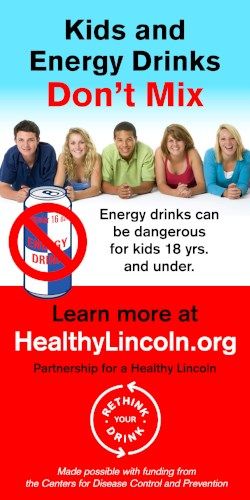
Energy Drinks, Alcohol and Kids
FACT - Underage drinking is always dangerous, but a recent trend among teens to mix alcohol with energy drinks increases the danger. According to the Centers for Disease Control and Prevention (CDC), in 2015, 13.0% of students in grades 8, 10, and 12 reported consuming alcohol mixed with energy drinks at least once in the past year. Studies have found (1) those who binge drank were more than twice as likely to mix alcohol with energy drinks as non-binge drinkers (2) drinkers aged 15 to 23 who mix alcohol with energy drinks are 4 times more likely to binge drink at high intensity, and (3) drinkers who mix alcohol with energy drinks are more likely report unwanted or unprotected sex, driving drunk or riding with a driver who was intoxicated, or sustaining alcohol-related injuries.
